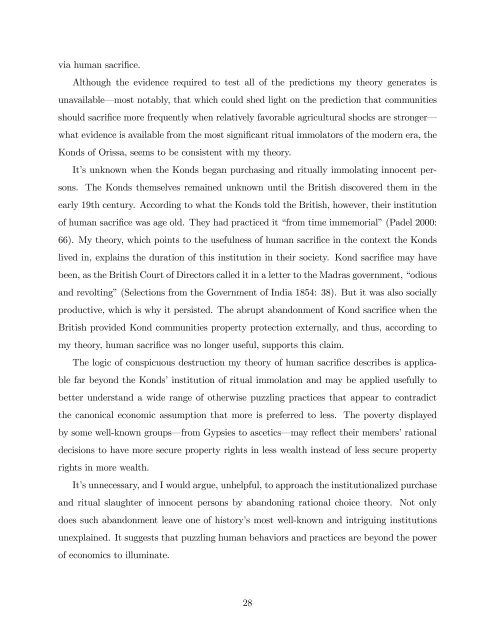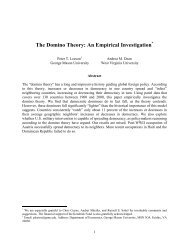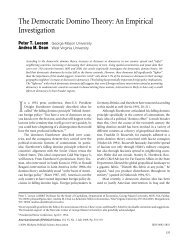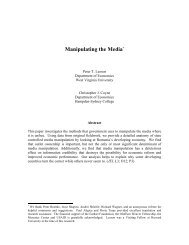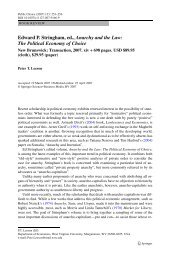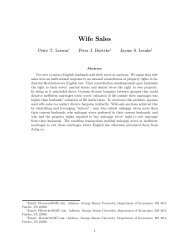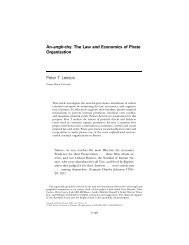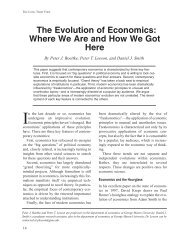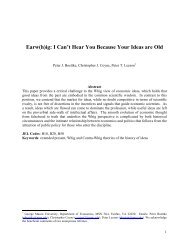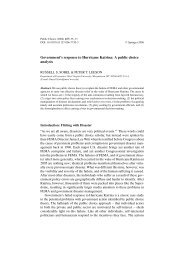Human Sacrifice - Peter Leeson
Human Sacrifice - Peter Leeson
Human Sacrifice - Peter Leeson
You also want an ePaper? Increase the reach of your titles
YUMPU automatically turns print PDFs into web optimized ePapers that Google loves.
via human sacri…ce.<br />
Although the evidence required to test all of the predictions my theory generates is<br />
unavailable— most notably, that which could shed light on the prediction that communities<br />
should sacri…ce more frequently when relatively favorable agricultural shocks are stronger—<br />
what evidence is available from the most signi…cant ritual immolators of the modern era, the<br />
Konds of Orissa, seems to be consistent with my theory.<br />
It’s unknown when the Konds began purchasing and ritually immolating innocent persons.<br />
The Konds themselves remained unknown until the British discovered them in the<br />
early 19th century. According to what the Konds told the British, however, their institution<br />
of human sacri…ce was age old. They had practiced it “from time immemorial”(Padel 2000:<br />
66). My theory, which points to the usefulness of human sacri…ce in the context the Konds<br />
lived in, explains the duration of this institution in their society. Kond sacri…ce may have<br />
been, as the British Court of Directors called it in a letter to the Madras government, “odious<br />
and revolting”(Selections from the Government of India 1854: 38). But it was also socially<br />
productive, which is why it persisted. The abrupt abandonment of Kond sacri…ce when the<br />
British provided Kond communities property protection externally, and thus, according to<br />
my theory, human sacri…ce was no longer useful, supports this claim.<br />
The logic of conspicuous destruction my theory of human sacri…ce describes is applicable<br />
far beyond the Konds’institution of ritual immolation and may be applied usefully to<br />
better understand a wide range of otherwise puzzling practices that appear to contradict<br />
the canonical economic assumption that more is preferred to less. The poverty displayed<br />
by some well-known groups— from Gypsies to ascetics— may re‡ect their members’rational<br />
decisions to have more secure property rights in less wealth instead of less secure property<br />
rights in more wealth.<br />
It’s unnecessary, and I would argue, unhelpful, to approach the institutionalized purchase<br />
and ritual slaughter of innocent persons by abandoning rational choice theory. Not only<br />
does such abandonment leave one of history’s most well-known and intriguing institutions<br />
unexplained. It suggests that puzzling human behaviors and practices are beyond the power<br />
of economics to illuminate.<br />
28


